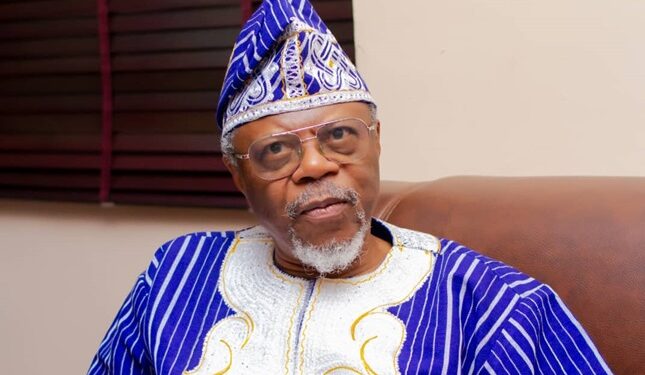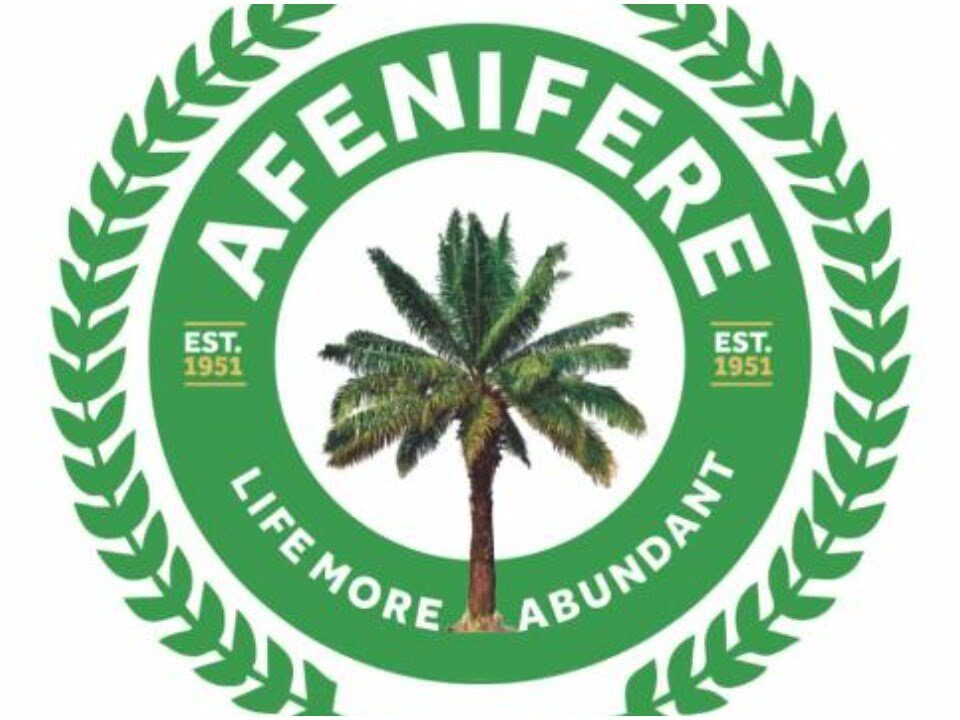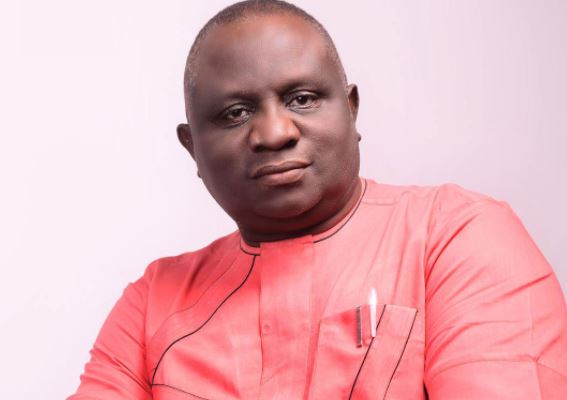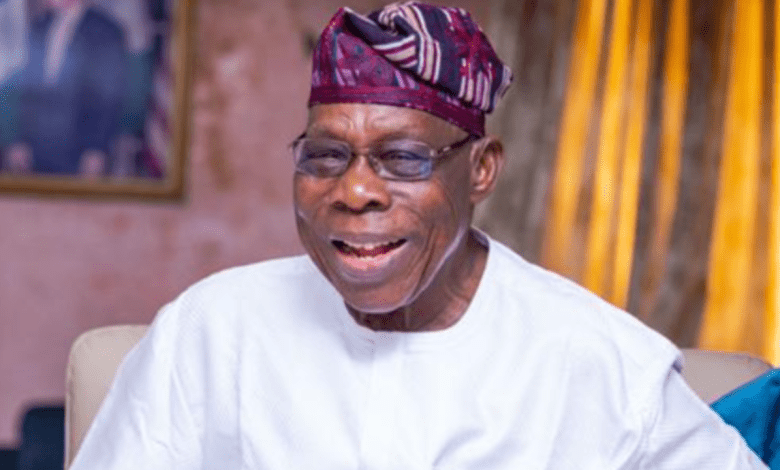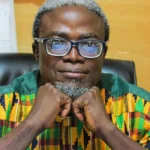
Conversation with Professor Adeshina Afolayan – Nollywood in Review
September 17, 2024
Governor Makinde and the Biggest Business District in the World
September 23, 2024On October 15, 2024, at the University of Ghana, Professor Toyin Falola, Africa’s most decorated humanities scholar, will inaugurate a new field, African Ancestral Studies (AAS). The inauguration is part of the preface to the 2024 Anton Wilhelm Lecture, organized annually by the Merian Institute for Advanced Studies in Africa, one of the high-profile events at the University of Ghana.
The idea of this new field has generated widespread enthusiasm as he explains its foundational platform and multi-layered contents.To those who want to teach the subject, Falola has made available close to a dozen syllabi.In a series of interviews with journalists across Africa, he explains that the field will cumulate themes and topics from a dozen fields into what is deeply African, thus adding to the promotion of the idea of African universities instead of universities in Africa. AAS will merge ideas on what we traditionally call heritage, culture, and identity.
Falola is set to announce the various dimensions of African Ancestral Studies in greater detail, focusing on the following areas: Genealogy and Ancestral Lineage, Cultural Practices and Traditions, Governance, Kingship and Political Institutions, Spiritual and Religious Beliefs, Historical Studies, Diaspora and Identity, Language and Oral Traditions, Arts and Material Culture, Intersections with African Philosophy, African Ancestral Studies and Modernity, Indigenous Knowledges, Ancestral Studies and Popular Culture, and the Role of African Ancestral Studies on Global Africa.From tracing ancestral lineage to recovering cultural knowledge and identity, AAS – as a fluid and interdisciplinary field – seeks to reconnect people and communities to their past, both on the African continent and in the diaspora.However, it is crucial to distinguish African Ancestral Studies from the study of African history and Heritage Studieswrit large, as it will cover more than one person, more than one generation, spanning time and space, and more than one context.AAS will see both the collective and the personal in the past.
One of the most enduring aspects of AAS is the emphasis on genealogy and tracing one’s ancestral lineage.It will expand our knowledge of African families and kinships.This is accomplished by incorporating oral histories, genealogical research, and the current science of genetic testing.The importance of knowing one’s family lineage and ancestral relations was critical to identifying one’s social position in society, as well as knowing the spiritual and social obligations of this position in precolonial Africa – and, of course, in many Indigenous groups in the Western hemisphere in the modern era.For the hundreds of thousands who were displaced during the process of the transatlantic slave trade and for the millions who were born in the diaspora, the diaspora was an existential break from ancestral memory and ancestral power. AAS will create powerful tools for restoring ancestral connections.Similarly, in an age of widespread modern displacements and migrations that have disconnected millions of Africans on the continent from their ancestry and lineages, this field of study will be useful for reconnecting them to those kinship heritages.
Cultural Practices, Indigenous Knowledge, and Traditions
Cultural patterns and practices have also become a centre ground for African societies; these include traditional music and dance, clothing, and traditional rites of passage from birth and marriage to death.The coreofAASwill include the preservation and understanding of these traditions.A central means to this end was and is oral history since so much of African life was carried out in oral societies where written records were rare.To pass down information from one generation to the next, societies had griots: a group of traditional and professional storytellers who remembered histories, genealogies and folklore and retold them.Thanks to their work, modern commentators and descendants can understand the nuanced social structures of African people and their cultural manifestations.This is because many of these practices are maintained by African descendants in the diaspora as symbols of a continuing cultural identity in foreign lands.In such contexts, for instance, the wearing of traditional African clothing at ceremonial occasions can become a potent symbol of pride and resistance to the humiliation of forced acculturation.AASshall involve the documentation of many practices.
Language and Oral Traditions
Language is at the centre of AAS because that is exactly how culture and knowledge retain continuity across the ages; that is, through language, which is passed from one generation to the next.African societies are replete with a tradition of stories of origin, proverbs, poetry and song, which have been integral in the conveyance of history and morals, as well in the engendering of social values.African languages are also endangered from the domination of colonial languages, such as English, French, and Portuguese.AAS considers the importance of keeping indigenous African languages as they are the key to African identity.It is not only about communication, preserving and reconnecting to the ancestors’ culture, but also about our ancestors’ culture.
Spiritual and Religious Beliefs
African traditional religions, many of which are centred on the honouring of ancestors and the spirits who live in nature, have often provided the framework through which many African communities understand the world.Although they are often thought to be monotheistic, many forms of Christianity had polytheistic roots before they were Christianity.Furthermore, African traditional beliefs are often polytheistic belief systems, which are usually defined as religions that see the natural world as spiritual.For many African religions, the veneration of ancestors is a very important component.It is believed that the spirits of the deceased maintain a continuing relationship with the living for the support and protection of the living and that they lose their identity and even their enlightenment afterwards.
Consequently, in many African diasporic religions, the practice of veneration of one’s ancestral lineage – with offerings, sacrifices, chants, incantations, prayers and rituals – has continued over many generations, even during episodes of an enforced physical distance between one’s culture and religion of origin and the religion of the culture and regime that forced a religious and cultural detour or extension.As a result, these practices will be found in many religions of African origin in the African diaspora that have been either retained intact or else, through syncretism, an admixture of African religious practices with various Catholic and other systems such as Vodou in Haiti, Santería in Cuba and Candomblé in Brazil.On the contrary, by treating these belief systems as expressions of the wider cultural and social values of African communities, AAS investigates the cultural and social role that belief systems have performed, both historically and in the present, and how they have developed within the diaspora.
Arts and Material Culture
Art is integral to AAS, as its central intention is to represent the ethos – or ways of thinking and living – of African societies.For example, art in precolonial Africa included both the decorative and cultural.In other words, many art forms in precolonial Africa not only served an aesthetic decorative purpose but also were tied to cultural traditions and values.We see this in everything from masks or sculptures used in rituals and ceremonies to textiles or pots used in daily interactions and decorations around the home.African art or aesthetics have also influenced art movements around the world.In the 20th century, European artists such as Pablo Picasso in France and Henri Matisse in Spain actively appropriated African aesthetics to rock the European art world.Secondly, AAS intends to reclaim African art, or art products made by Africans, from the prevalent Western appreciation apparatus and embed them into their original culture and ancestry.
Historical Studies
The history of Africa is central to AAS because it sheds light on the circumstances that led Africans to have the culture, customs, traditions, etc., they have.African history is typically organised into precolonial history, colonial history and post-colonial history.Each of these has played a pivotal role with regard to how African societies came to be.Nonetheless, there was a lofty ancient civilization in precolonial Africa, including Ancient Egypt, the Kingdom of Kush, the Mali Empire, Great Zimbabwe and more, which provided enormous contributions to the world in terms of art, science, religion and governance.Through AAS, we counter Eurocentrism,which has historically told the world a monoculture narrative that Africans are primitive and a continent full of savages and barbaric natives.The colonial era in Africa began in earnest in the late 19th century with the Scramble for Africa, where European powers recklessly feasted at the table of Africa to lay claim to its exploitable riches and subjects.The result was the normalization of the brutal suppression of nations and violent invasion of peoples’ ancestral homelands.AAS serve to contribute to the recording of the legacy of colonialism and the ways in which African peoples resisted the force of foreign rule.Post-colonial Africa has been characterized by struggles for independence, nation-building and economic development.For many African nations, these challenges remain as we seem to be in a continual state of dealing with the vestiges of colonialism, whether that means political instability, economic inequality, cultural fragmentation and, in certain instances, civil warfare.AAS is one of the ways that we can view these challenges, as well as how Africans – and their descendants – are recapturing the past and creating the future.
African Philosophy
Another connective comes through the convergence of AAS with African philosophy, most notably the sub-field that highlights concepts such as Ubuntu (the philosophy of interconnectedness), Omoluwabi (the philosophy of good character),and communalism.Each breaks apart from Western ideals or notions of individualism and celebrates or highlights notions of community, reciprocity, and the interconnectedness of people and their ancestors, the latter of whom are revered in many African settings.
Diaspora and Identity
The African diaspora refers to those singular communities of African descendants scattered around the world, whose dispersal has largely occurred as a direct consequence of the slave trade (especially transatlantic).AAS brings back to centre stage the question of how humans articulate their identities and relations once dispersed and, specifically here, what bearing the experience of the diaspora lack of integrity or memory has had on, and for, diaspora communities who strive, as scholars of African descendants should do, to explore how African-rooted people have maintained – or, importantly, re-established – their links with their original African heritage.This is a particularly keen problem for African diaspora peoples who have endured racism, discrimination and cultural erasure in modern Western cultures, from the Americas and Europe to other corners of the world.Many diaspora populations have managed to safeguard recognizable elements of African heritage in language, religion and the arts, especially in the realms of music and dance: African American spirituals and gospel music; the Caribbean reggae and calypso, Brazilian samba.A second areais a continuing conversation between the diaspora and the African continent and its peoples.It addresses the attempts by some in the diaspora to reclaim their links to their African heritage.This includes a reassessment of the long history of diasporic connections, such as the importance of Africa and the awareness of African ancestry, intermittent experiences on the African continent, and the changing context of post-19th-century globalization, which frames questions of cultural hybridity and dichotomy of identity, rootedness and dislocatedness, as well as resistance to processes of cultural assimilation.
African Ancestral Studies and Modernity
AAS must confront how modernity, globalization and technological change affect African societies.How, within these modern contexts, do African people manage to preserve their cultural heritage?How do members of the diaspora use modern technology, such as social media, to reconnect with those heritage roots?
The Role of African Ancestral Studies in Global Discourse
AAS has an important role to play in global conversations about race, identity and cultural preservation.By privileging African self-perceptions and cultures, the field highlights exclusions and erasures in dominant narratives of history and culture.It also helps forge more complex and extensive narratives of global history and human diversity.
Falola insists that this is a viable and sustainable field that will inspire original research by a new generation of scholars and create a transformational impact. Ancestralism permeates and is the thread that connects all the fields of African Studies as it currently exists and is a standpoint from which to engage the many debates arising from those fields.
Source: Nigerian Tribune.


